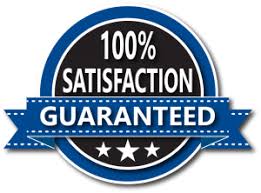How Leaders Should Think Critically
How Leaders Should Think Critically
How Leaders Should Think Critically
| After completing your other readings for this week read the Baldoni (2010) article. How do the more in-depth ideas from your other readings fit with this quick practical article? What implications do all your readings have for your vision/mission/value statement?
This is also a good week to find outside resources that further your knowledge on critical thinking, mindfulness, and cultural awareness to help you think through these ideas further. |
Required Readings:
- Gamble, T.K., & Gamble, M.W. (2013). Leading with Communication: A Practical Approach to Leadership Communication. Thousand Oaks, CA: Sage. Chapter 4.
- The Critical Thinking Community. (2015). Defining Critical Thinking.
- Baldoni, J. (2010 Jan. 10). How Leaders Should Think Critically.
Optional Readings
- Davis, D.M., & Hayes, J.A. (2012). What are the benefits of mindfulness. Monitor on Psychology, 43(7).
- Bird, A., & Osland, J.S. (2006). Global Competencies: An Introduction. In H.W. Lane, M.L. Maznevski, M.E. Mendenhall, & J. McNett (Eds.) Handbook of Global Management: A Guide to Managing Complexity. Malden, MA: Blackwell Publishing. Pp.57-80. [eReserves, via Library Resources]
How Leaders Should Think Critically If you want to succeed in 21st Century business you need to become a critical thinker. Roger Martin of the Rotman School of Management figured this out a decade ago and as dean, has been working to transform his school’s business curriculum with greater emphasis on critical thinking skills. As Lane Wallace explained in the New York Times, what Martin and many others are seeking to do is approach learning and problem solving from a multicultural platform that borrows from academia, business, the arts and even history.
Critical thinking has always been a prized attribute of leadership, but over the years, especially as business schools have emphasized quantitative skills over qualitative ones, critical thinking dropped by the wayside. Now as the rate of complexity rises, the need for critical thinking resurfaces.
David A. Garvin of the Harvard Business School told the New York Times, “I think there’s a feeling that people need to sharpen their thinking skills, whether it’s questioning assumptions, or looking at problems from multiple points of view.†With this, Garvin, who is a co-author of Re-Thinking the M.B.A.: Business Education at a Crossroads, neatly summarizes a foundation for how to begin to instill a critical thinking mindset.
Let me expand further what you need to do to think critically:
Question assumptions. Critical thinkers are inquisitive and look to find the what and the why behind every proposition. We saw the need for this when our financial markets melted in 2008. Crisis can bring out the best critical thinking because it forces you to question how and why you ended up in trouble.
Adopt different perspectives. Take advantage of the genders and cultures represented in today’s diverse management landscape. An Indian-trained engineer may not view a problem the way one raised in Iowa will. Both may have the same problem-solving tool kit, but their different experiences can provide valuable insights.
See potential. Assumption-busting and harnessing multiple perspectives are deductive skills. Critical thinkers should also have a creative bent that allows them to see opportunities where others see obstacles. For example, one executive may see a production snag as a problem whereas a savvy thinker must view it as an opportunity to revamp the process to produce something new.
There is one additional aspect of critical thinking that is vital to today’s leader: managing ambiguity. The speed of business, intertwined as it is with global factors and complex supply chains, dictates that you will never know all the variables. Therefore, you need to get comfortable with operating in an environment where change is constant and rapid decisions are required.
In a world of growing uncertainty one thing is certain; we will need sharp critical thinkers who can size up the situation, realize the potential where others may not, and seize opportunities through prompt decision-making.
Use the following coupon code :
NursesHomework

